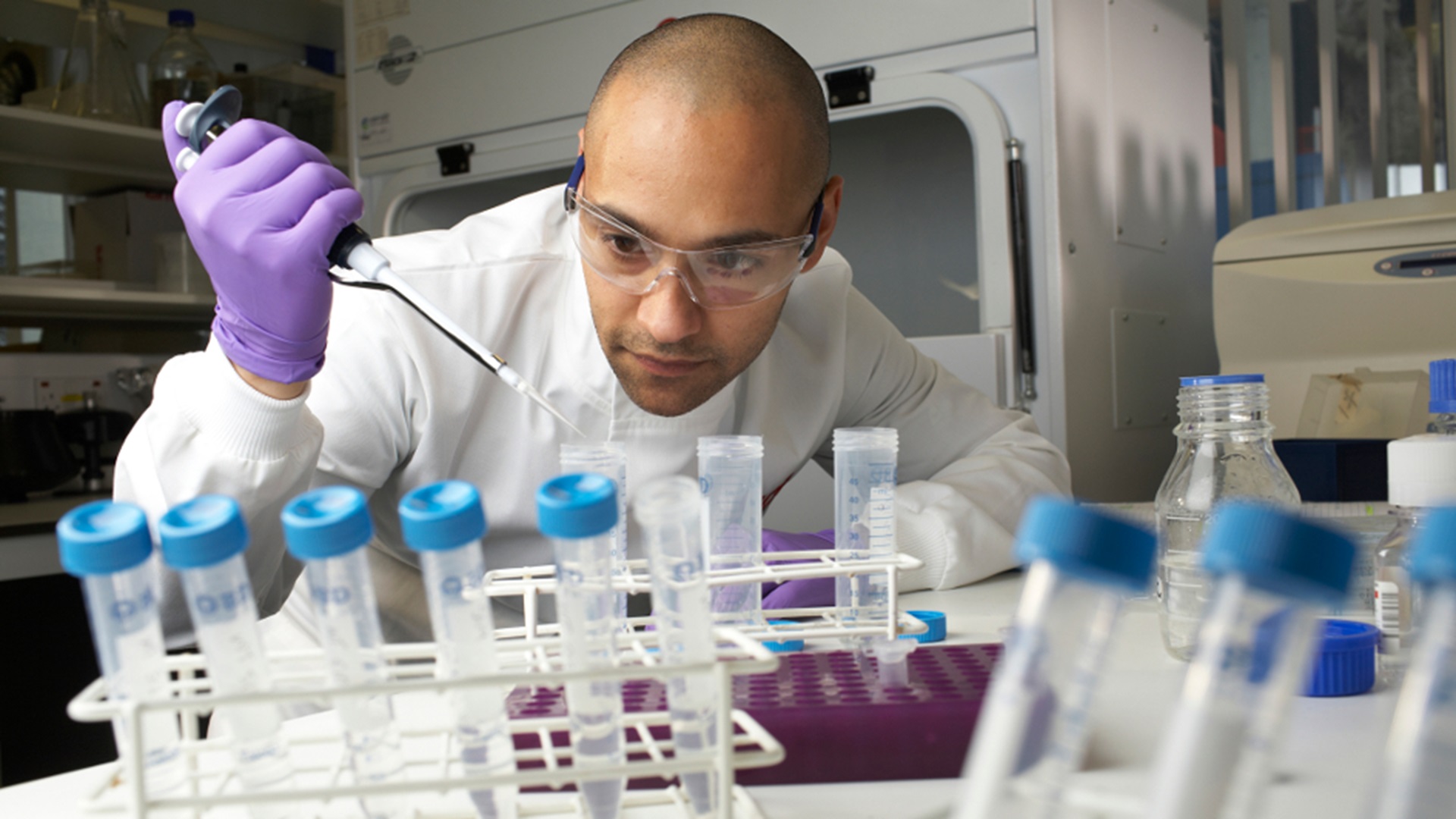
Opportunity: A small molecule drug conjugate as a novel prodrug-activating platform
ICR lead scientists/inventors:
ICR lead scientists/inventors:
Opportunity at a glance
The Institute of Cancer Research, London, is seeking investors for an investigator-initiated study to develop a novel platform technology. The platform technology will take the form of a small-molecule drug conjugate made of urokinase, folic acid and a linker, which will then activate prodrugs in the proximity of tumours. Strong rationale for use of small molecule drug conjugate in cancers that overexpress the folate receptor, such as ovarian cancer, triple negative breast cancer and non-small cell lung cancer. Team has a very strong track record in leading phase I clinical trials and can swiftly translate positive findings into the clinic. Team previously discovered and developed folate receptor targeting-small molecule drug conjugate idetrexed, which trialled successfully at phase I and is now set for phase II (Algok Bio).
About the programme
Professor Udai Banerji’s laboratory is seeking funding for a project to create a novel small molecule drug conjugate combining urokinase and folic acid. The molecule could activate multiple prodrugs. A range of highly toxic cytotoxic agents such as minor groove binders have shown efficacy in vitro as anti-cancer drugs, but have not been progressed due to bone marrow toxicity. There is an opportunity to develop these agents by targeting them to tumours, and therefore lowering the systemic dose to reduce toxicity without reducing efficacy. One method that researchers have tried in the past is to develop inactive prodrugs, comprising a cytotoxic warhead with an inactivating cap and linker that can be cleaved by intrinsic proteases. This approach has had limited success, because intrinsic protease levels in tumours are too low. The research team plans to deliver urokinase, a protease, directly to tumours to activate prodrugs. Urokinase is a serene protease that is already used routinely in standard treatment at high doses, to dissolve clots in patients with thrombosis. They plan to target urokinase to cancer cells by conjugating it with folic acid, which binds to the alpha folate receptor with high affinity and selectively, and is safe to use. Conjugation of the serine protease domain of urokinase to folic acid will localize a protease to folate receptor-overexpressing cells, activating multiple prodrugs.
Folate-targeting drugs
Several solid tumour types overexpress the folate receptor, including ovarian cancer, triple negative breast cancer and non-small cell lung cancer. There are several previous examples of exploiting folate receptor expression in cancer treatment:
• idetrexed is a conjugate of folic acid and thymidine synthase, discovered and initially developed at the ICR and now set to enter a phase II trial sponsored by Algok Bio.
• vintafolide is formed of a small molecule, folic acid, a cleavable linker and desacetylvinblastine hydrazide.
• mervituximab soravtansine (Elahere, Immogen / AbbVie) is an antibody-drug conjugate (ADC) used as a standard treatment in several cancers with high levels of alpha folate receptor expression. Our research team has shown it is possible to localize pharmacologically relevant concentrations of compounds in patients with alpha folate receptor targeting tumours.
Key publication (clinical development of idetrexed)
Banerjee S, et al, 2022. A Phase I Trial of CT900, a Novel alpha-Folate ReceptorMediated Thymidylate Synthase Inhibitor, in Patients with Solid Tumors with Expansion Cohorts in Patients with High-Grade Serous Ovarian Cancer. Clin Cancer Res. Nov 1;28(21):4634-4641.
About the team
The Drug Development Unit at The Institute of Cancer Research and The Royal Marsden NHS Foundation Trust is one of the world’s leading academic phase I oncology trial units, carrying out around 50 novel first-in-human studies at any one time.
Drugs to reach regulatory approval that have undergone key trials at the unit include capivasertib (Truqap, AstraZeneca), abiraterone (Zytiga, J&J), olaparib (Lynparza, AstraZeneca), everolimus (Afinator, Novartis) and belinostat (Beleodaq, Acrotech).
The unit is led by Professor Udai Banerji, the ICR’s Co-Deputy Director of Drug Development. Professor Banerji also leads our Cancer Pharmacodynamic Biomarkers Group, which provides bespoke services including trial-specific biomarker assay development to industry sponsors.
Professor Banerji works closely with ICR scientists from our Centre for Cancer Drug Discovery to develop ICR-discovered drugs into early trials with industry partners, and with other clinical colleagues to develop drugs into phase II trials and beyond.
Contact
Jenny Worthington
PhD Business Development Manager
Email: [email protected]